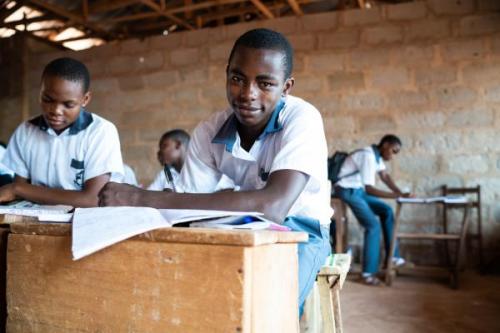Early marriage introduces a significant risk of violence and opresses girls’ opportunities for a better life. In Nepal, four in ten women marry before the age of 18. — this is often accompanied with a lack of choice, voice and independence, due to the young age at which they are betrothed.
Kajal, like many other girls in Nepal, was nearly forced into early marriage. At 10 years old, Kajal’s father fell ill, and she was pulled out of school to support her family and ease their financial struggles. Soon after, her sister got married. Kajal began to feel concerned for herself and her family — she wondered how they would manage with one less person in the house to support with household and caregiving duties and contribute to the family’s income. Soon, Kajal’s concern was doubled by something more: her parents began talking about Kajal getting engaged, too.
Kajal’s parents did not perceive anything unusual, since the practice is socially acceptable in Nepal and many countries around the world. Child marriage is often seen as a way to to reduce financial pressure on the daughter’s family, especially if there are a lot of children. Millions of early marriages across the world are supported by dowries, where men compensate families to marry their daughters. This arrangement often provides families with an opportunity to make financial gains, and it was clear that Kajal’s family was in desperate need of additional finances. Although child marriage is explicitly prohibited in Nepal, some families continue to practice it. This phenomenon is perpetuated for several reasons, including social norms, lack of awareness of national policies, and low financial capacities for traditionally large families to support themselves.
Upon realizing her parents’ intentions, panic struck Kajal: she did not envision this outcome for her life.
In response, Kajal identified additional ways to provide for her family: she enrolled in a sewing workshop offered by her district and became a seamstress. Soon after, Kajal began attending sessions coordinated by Voluntary Service Overseas (VSO), under the financial support and technical guidance of the End Violence Partnership . These sessions aimed to provide girls with quality education to develop the skills they need to earn a decent living, and increase knowledge on child and women’s rights to empower them to take control of their reproductive health. These sessions also raised awareness on the dangers of early marriage, and reinforced Kajal’s hesitation to utter an early vow. One in three married women in Nepal, for example, are subjected to sexual violence by their husbands, while one in six report physical violence. Kajal knew she did not want to be part of these statistics.
Kajal’s parents, however, still had a different plan. They sought additional financial support, and in keeping with tradition, they arranged for her to be married at 18 years of age. Around the same time, however, Kajal’s parents happened to attend a VSO-sponsored event that discussed early marriage, the abuse and violence that accompanies it, and its legal ramifications. After the event, Kajal’s parents decided to cancel her wedding, saying that after learning about the negative consequences of early marriage, their outlook has changed on the matter. The VSO programme and event changed Kajal’s life — and today, she has control over when and who she will marry.
I am so happy because now, I have a chance to move forward, and now, I will get married only after being independent.
VSO is one of eight organisations that received funding through End Violence’s Safe to Learn window, which supports organisations working to protect children in and through schools in Cambodia, Lebanon, Nepal, South Sudan and Uganda.
The End Violence Partnership believes that every government should enact an enabling legal and policy framework to end child, early and forced marriage to help girls fulfil their potential. Any legal change to address early marriage must be accompanied by a comprehensive approach supported by laws, policies and programmes, like VSO’s, that put the autonomy and the rights of girls at the centre.
Learn more about our work and our efforts to #ENDviolence through the Safe to Learn funding window.

